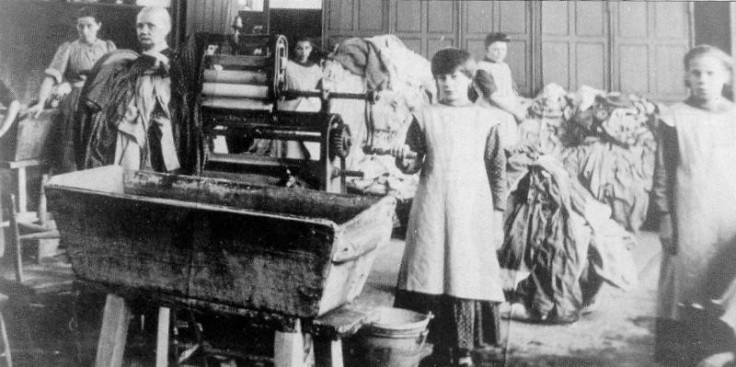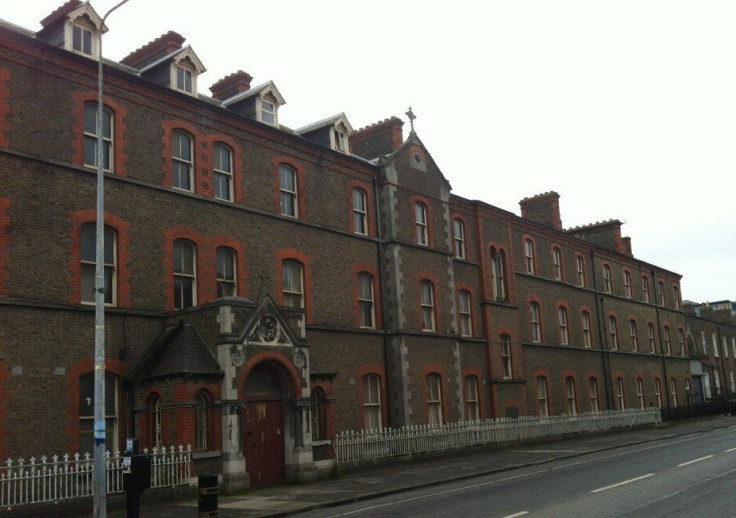Irish Government Involved in Magdalene Laundry Forced Labour Scandal
Prime Minister Enda Kenny refuses to apologise for Dublin complicity in 'fallen women' abuse scandal that went on for 70 years

The Irish government was involved in around a quarter of the Magdalene Laundry cases, where women were sent into forced labour between the 1920s and 1990s.
Prime Minister Enda Jenny apologised for the stigma attached to women who were put in the laundries, but did not say sorry directly for the state's involvement.
The report found that there was "significant" level of state involvement in the laundries, with 26.5 percent of women and children sent there through court orders, gardai, social services or under supervision after leaving industrial or reform schools.
The average stay was seven months. Records were available to investigators for eight of the 10 laundries that were probed.
It found that 879 women and children died in the laundries. The youngest was 15 and the eldest was 95.
Kenny said there was no evidence that the women were sexually abused at the laundries despite many victims reporting that this was the case.
The Taoiseach added that the stigma attached to women who worked at the laundries must be removed.
He said "destitution and poverty" were reasons why women were sent to the institutions.
Kenny said the government should provide support for any of the victims still alive and called for a parliament sitting, or Dáil, in two weeks after politicians have had a chance to read the report.
The UN Committee Against Torture called for the government to set up an inquiry into the Magdalene Laundries in 2011.

The report, chaired by Senator Martin McAleese, was undertaken by an interdepartmental committee to determine whether the Irish state was involved in the laundries.
McAleese wrote: "The committee found significant state involvement with the Magdalene Laundries. Its findings in many cases may also encourage a review of some perceptions about these institutions and the women who were admitted to and worked in them.
"The committee hopes that the facts established for the first time by its work will contribute to a more complete, accurate and rounded understanding of these issues.
"The committee hopes that this report will be a real step in bringing healing and peace of mind to all concerned, most especially the women whose experience of the Magdalen Laundries had a profound and enduring negative effect on their lives."
The Magdalene Laundries were originally known as asylums. They opened in Dublin in 1795 before being converted to Catholic-run laundries in the early 1920s.
They were used as refuges for "fallen women" - unmarried mothers, girls with learning difficulties, and abuse victims - who became long-term residents and were forced to work long hours without pay.
They were self-supporting and many Irish institutions, including government departments, had contracts with them.
It is estimated that 30,000 women and girls ended up in the laundries where they were held as virtual prisoners.
The last laundry did not close down until 1996.
In 2001, the Irish government acknowledged that women at the laundries had been victims of abuse and many told stories of sexual, psychological and physical assaults.
McAleese wrote: "Many of the women who met the committee - and particularly those who entered the Magdalene Laundries as young girls - experienced the laundries as lonely and frightening places. For too long, they have been and have felt forgotten.

"For many of them, an inability to share their story in the years after their time in a Magdalene Laundry has only added to the confusion and pain they feel about that period in their lives."
McAleese spoke about the young girls who were moved to the laundries after suffering abuse in their own homes.
"None of us can begin to imagine the confusion and fear experienced by these young girls, in many cases little more than children, on entering the laundries - not knowing why they were there, feeling abandoned, wondering whether they had done something wrong, and not knowing when - if ever - they would get out and see their families again," he said.
"It must have been particularly distressing for those girls who may have been the victims of abuse in the family, wondering why they were the ones who were excluded or penalised by being consigned to an institution.
"To add to this confusion, most found themselves quite alone in what was, by today's standards, a harsh and physically demanding work environment. The psychological impact on these girls was undoubtedly traumatic and lasting."
Before the report's release, the Justice for Magdalenes survivor advocacy group said the Irish government was aware of the nature and function of the laundries and enacted legislation to enable the use of one laundry as a remand home.
It also said the government knew children and adolescent girls were confined in the laundries as late as the 1970s, among many other assertions.
Members of the group asked that the government develop compensation programmes for victims of the laundries and to issue an apology to them.
"Magdalene survivors have waited too long for justice and this should not be now burdened with either a complicated legal process or a closed-door policy of compensation," they said.
© Copyright IBTimes 2025. All rights reserved.





















